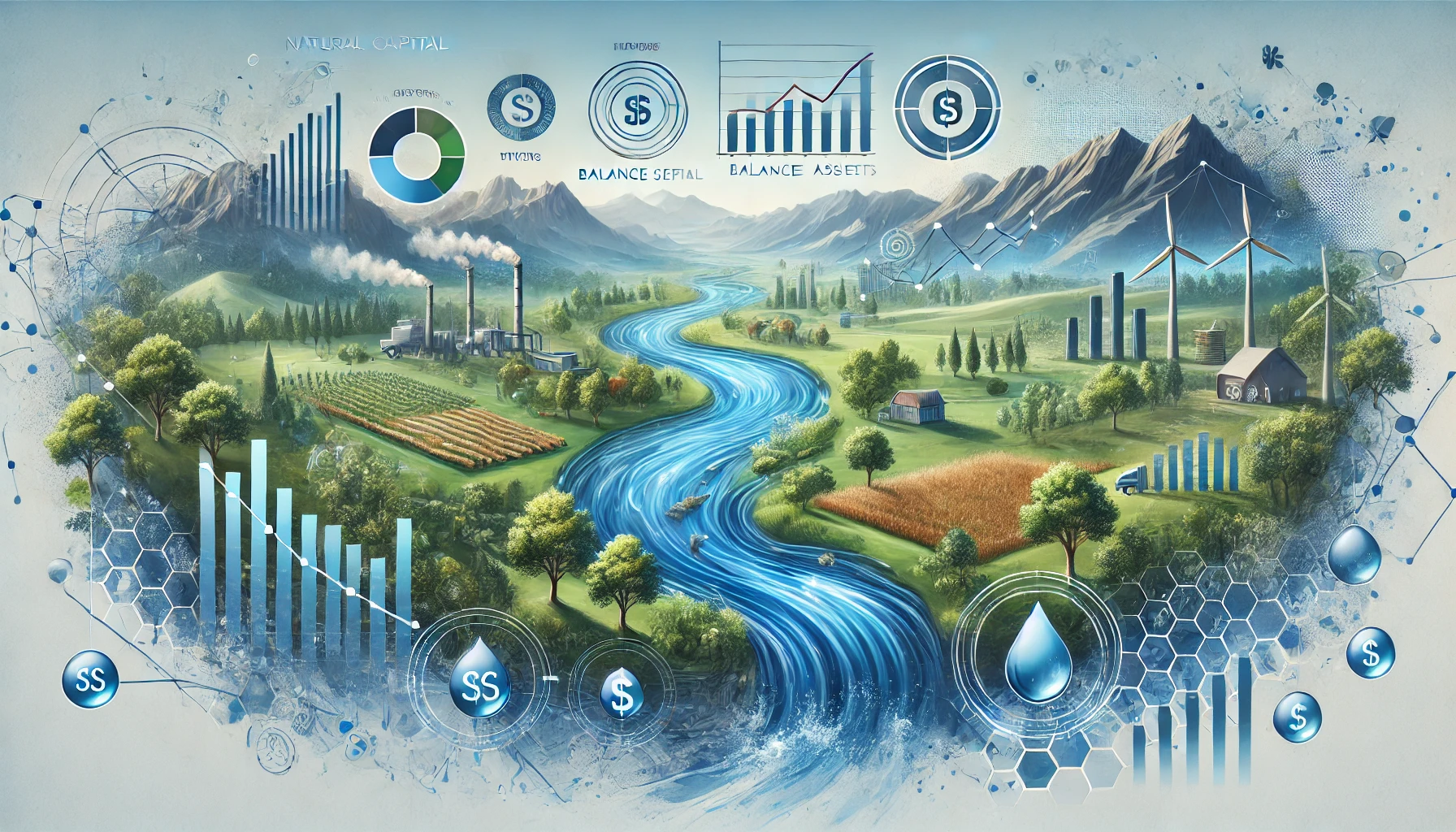Towards Sustainable Wealth: Why Water Valuation Matters in National Accounting
The World Bank's report emphasizes the urgent need to integrate water valuation into national wealth metrics, highlighting various valuation methods and recommending a combined approach to better reflect water’s economic and environmental significance. Accurate data and partnerships are essential for sustainable water management on a global scale.

The World Bank's technical report, "Adding Water to the Changing Wealth of Nations," conducted by researchers from the Australian National University and other contributors, aims to address the critical and increasingly urgent issue of water valuation within global wealth metrics. The report seeks to quantify water's role as a natural capital asset, acknowledging that water scarcity, climate change, and demographic pressures are transforming water into an economic, environmental, and social priority. Recognizing that water is as essential to life as it is to economic processes, this report proposes adding water to the World Bank’s Changing Wealth of Nations (CWON) database to reflect its full value within national wealth frameworks. The inclusion of water as an asset, much like minerals, fossil fuels, or forests, would mark a significant advance in understanding the sustainability of global resources by providing a framework that tracks not only natural but also renewable and non-renewable capital. Water’s current absence from these accounts leaves a critical gap, as countries worldwide face dwindling water supplies amid increased consumption and climate-driven water variability.
Complex Challenges in Water Valuation
Water valuation poses complex theoretical and practical challenges, as it is often available at minimal or no direct cost to users despite its economic value. This unique status complicates its representation as a national asset, especially because water pricing and distribution typically do not reflect water’s true value. The report identifies three potential approaches for valuing water: asset-by-asset, use-by-use, and service-by-service. Each approach has advantages and limitations, but the service-by-service approach emerges as the most feasible. This method uses a top-down model based on ecosystem services, which essentially values water through the benefits it provides, such as drinking water, agriculture, or flood control. By focusing on water's provisioning and filtration services, this model aligns with current CWON valuation frameworks, providing a comprehensive approach to understanding water’s impact on economies. Despite its feasibility, this approach requires substantial data and modeling, much of which is currently limited or incomplete, creating the potential for low-quality estimates. Nevertheless, ongoing advancements in data and modeling techniques promise improvements in the near future, allowing for higher accuracy in capturing water's role within ecosystems and economies.
Challenges with the Use-by-Use and Asset-by-Asset Approaches
The report also assesses the use-by-use approach, which, although theoretically possible, faces significant obstacles due to data constraints. This approach would involve estimating water's contribution to various economic sectors by valuing the water embedded in agricultural production, manufacturing, and other sectors. While promising, it requires detailed water accounts for each sector, which are presently available only in limited geographic contexts. The report notes that most countries have not implemented water-specific accounting at the level of detail necessary for use-by-use assessments, making this approach less viable at the current stage. Additionally, using this approach could lead to inconsistencies across countries, as data quality and availability differ widely. However, as more nations adopt natural capital accounting systems and water-use data becomes more standardized, this method could become more achievable in the future.
Limits of Valuing Water Rights and Land
The asset-by-asset approach, which aims to value water by assessing tradable water rights or using hedonic pricing to separate water's value from that of land, is deemed unfeasible on a global scale. Tradable water rights are only available in a handful of countries, and hedonic pricing requires extensive data on land prices, rainfall, and local economic activity, making it impractical for widespread application. Given the current limitations, the report recommends a combination of the use-by-use and service-by-service approaches, starting with global service-based estimates supplemented by case studies from countries with robust water accounting systems. This combined approach would provide experimental estimates that could highlight regional variations and allow for calibration between top-down and bottom-up methods. By using countries with existing data as a baseline, these estimates could be refined over time, enhancing the overall accuracy and comparability of water valuation.
Avoiding Double-Counting Water's Value
The report also highlights the issue of potential double-counting, as water’s value may already be embedded in other natural capital assets, such as agricultural land or forests. For instance, CWON’s current valuation of forests includes ecosystem services like erosion control and flood protection, both of which involve water. Similarly, agricultural land values implicitly include soil water, while renewable energy valuations consider water in hydroelectric power generation. Therefore, careful consideration is needed to avoid overestimating water’s contribution to the wealth accounts. As a solution, the report recommends distinguishing between final and intermediate ecosystem services, with the latter embedded within the former to prevent duplication.
Next Steps for Water Valuation
Moving forward, the World Bank recommends establishing partnerships with international agencies and research institutions to expand data availability and improve water valuation methods. Collecting reliable, high-quality data across multiple regions and sectors will be essential for accurate water valuation, which would benefit both national and international planning. By creating partnerships with countries, organizations, and experts in water management, these efforts could develop innovative solutions to overcome existing data limitations and establish a systematic framework for regular valuation updates. The report concludes that integrating water as an asset in CWON would bring it into mainstream economic analysis, underscoring its essential role in sustainable development.
- FIRST PUBLISHED IN:
- Devdiscourse
ALSO READ
World Bank, Jamaica Launch $12M Waterfront Revitalization Project to Transform Kingston
World Bank Approves $63 M for Post-Hurricane Beryl Recovery in St. Vincent and Grenadines
World Bank Launches Global Challenge Programs to Address Key Development Issues
World Bank Supports Argentina with $2 Billion Loan for Social Development
Sitharaman Discusses Global Financial Reforms with World Bank President










